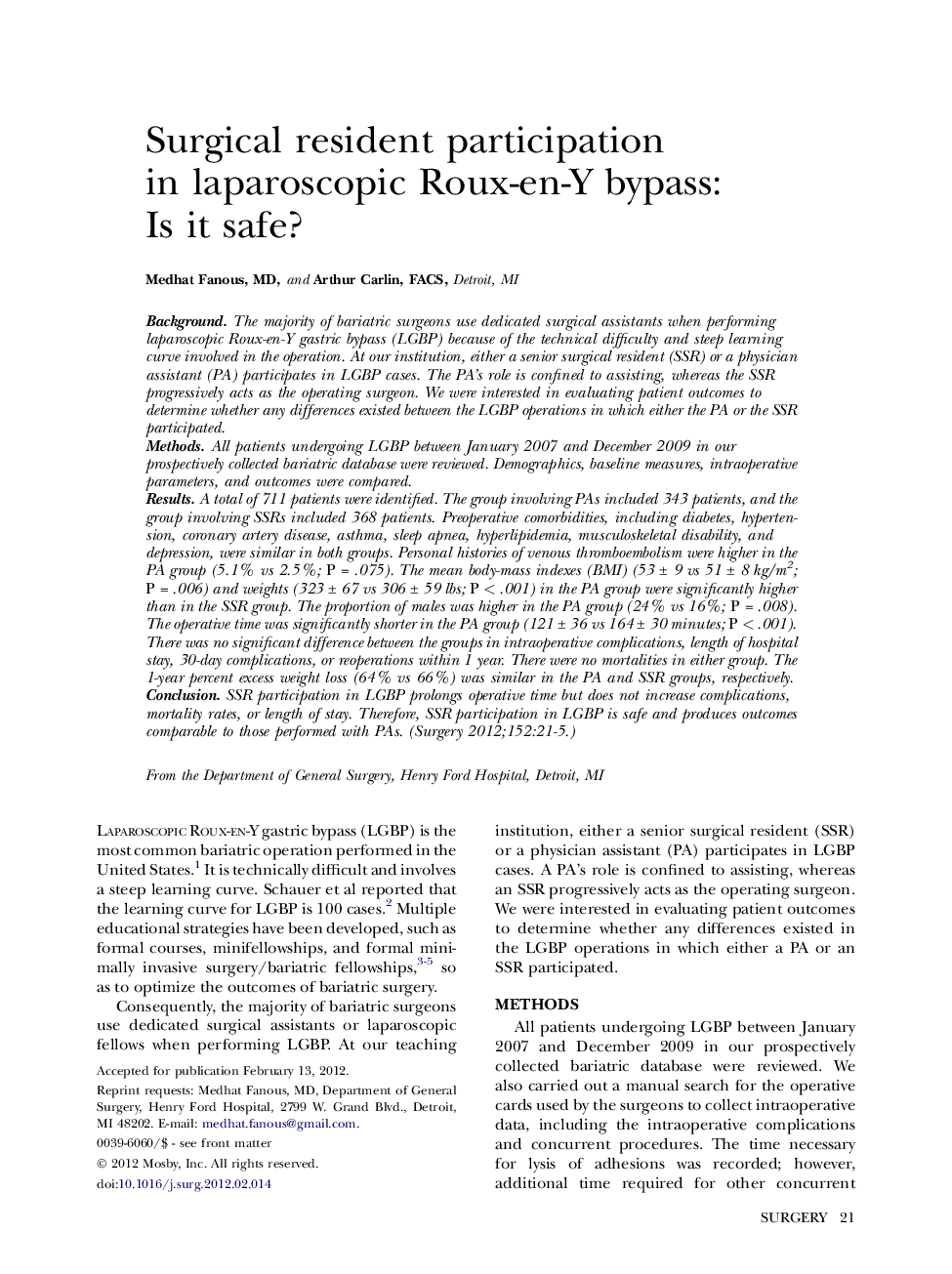| Article ID | Journal | Published Year | Pages | File Type |
|---|---|---|---|---|
| 4307972 | Surgery | 2012 | 5 Pages |
BackgroundThe majority of bariatric surgeons use dedicated surgical assistants when performing laparoscopic Roux-en-Y gastric bypass (LGBP) because of the technical difficulty and steep learning curve involved in the operation. At our institution, either a senior surgical resident (SSR) or a physician assistant (PA) participates in LGBP cases. The PA's role is confined to assisting, whereas the SSR progressively acts as the operating surgeon. We were interested in evaluating patient outcomes to determine whether any differences existed between the LGBP operations in which either the PA or the SSR participated.MethodsAll patients undergoing LGBP between January 2007 and December 2009 in our prospectively collected bariatric database were reviewed. Demographics, baseline measures, intraoperative parameters, and outcomes were compared.ResultsA total of 711 patients were identified. The group involving PAs included 343 patients, and the group involving SSRs included 368 patients. Preoperative comorbidities, including diabetes, hypertension, coronary artery disease, asthma, sleep apnea, hyperlipidemia, musculoskeletal disability, and depression, were similar in both groups. Personal histories of venous thromboembolism were higher in the PA group (5.1% vs 2.5%; P = .075). The mean body-mass indexes (BMI) (53 ± 9 vs 51 ± 8 kg/m2; P = .006) and weights (323 ± 67 vs 306 ± 59 lbs; P < .001) in the PA group were significantly higher than in the SSR group. The proportion of males was higher in the PA group (24% vs 16%; P = .008). The operative time was significantly shorter in the PA group (121 ± 36 vs 164 ± 30 minutes; P < .001). There was no significant difference between the groups in intraoperative complications, length of hospital stay, 30-day complications, or reoperations within 1 year. There were no mortalities in either group. The 1-year percent excess weight loss (64% vs 66%) was similar in the PA and SSR groups, respectively.ConclusionSSR participation in LGBP prolongs operative time but does not increase complications, mortality rates, or length of stay. Therefore, SSR participation in LGBP is safe and produces outcomes comparable to those performed with PAs.
